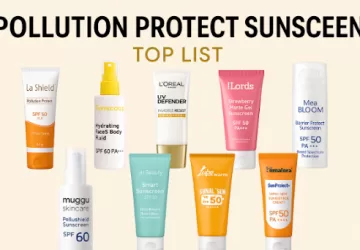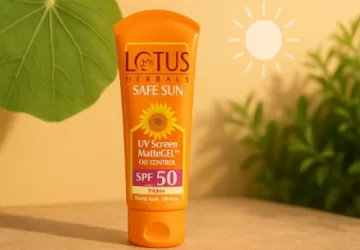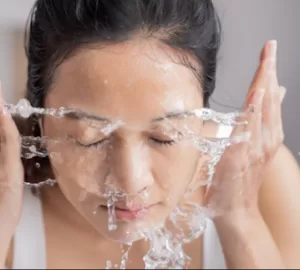In recent years, the beauty industry has been undergoing a digital transformation. At the heart of this shift lies a compelling revolution—personalized skincare innovations powered by artificial intelligence (AI). From AI-powered skin analysis tools to DNA-based formulations, beauty tech is moving away from a one-size-fits-all approach and embracing the power of customization.
Let’s explore how AI is changing the face of skincare, what brands are leading this innovation, and how inclusivity in makeup is evolving alongside this technological advancement.
Understanding AI in Skincare
Artificial Intelligence refers to machines that mimic human cognition to solve problems and automate decision-making. In skincare, this means using algorithms to analyze skin conditions, recommend products, predict outcomes, and even track progress over time.
AI-powered skincare goes far beyond apps that analyze your selfies. We’re talking about smart mirrors, 3D facial mapping, augmented reality (AR) experiences, and machine learning systems that understand skin on a molecular level.
Why the Skincare Industry Needed AI
Let’s face it: traditional skincare is often confusing. What works for your friend might wreak havoc on your skin. With so many skin types, tones, climates, and hormonal factors, creating a universally effective product is nearly impossible.
That’s where AI steps in—creating hyper-personalized routines based on real-time data, not guesswork. Personalized skincare innovations have made beauty more accessible, accurate, and tailored than ever before.
Best Personalized Skincare Innovations
AI-Powered Skin Analysis Apps
Apps like L’Oréal’s Skin Genius or YouCam utilize AI to analyze selfies and recommend products based on issues like acne, dryness, redness, or aging. These apps offer instant feedback, eliminating the need for trial and error.
Custom Formulated Products
Brands like Proven Skincare and Atolla (now owned by Function of Beauty) use quizzes and AI to formulate products tailored to your unique skin profile. You answer questions about your environment, lifestyle, and skin concerns—AI then crunches the data to create personalized serums or moisturizers.
Smart Devices and Wearable Tech
L’Oréal’s Perso is a game-changer. This handheld device uses AI and environmental data to mix and dispense personalized skincare, lipstick, or foundation in real time. Similarly, Opte scans skin for imperfections and applies a serum exactly where needed, minimizing waste.
DNA-Based Skincare
Companies like SkinDNA and GeneU analyze your DNA to predict how your skin will age, how it reacts to sun exposure, and what ingredients it needs. This leads to better long-term skincare planning and a deeper understanding of your skin’s genetic blueprint.
AI in Dermatology
Tools like SkinVision use deep learning to assess moles and spots for potential skin cancer risk. Though not a substitute for a dermatologist, it’s a helpful aid in early detection and awareness.
Inclusivity in Personalized Skincare
AI doesn’t just improve performance—it democratizes beauty. AI tools, when properly trained, can recognize and cater to all skin tones and textures, ensuring that underrepresented groups aren’t left out. This level of inclusivity was missing in traditional skincare, where darker skin tones were often underserved or misdiagnosed.
Where Non-Inclusive Makeup Brands Miss the Mark
Despite all this progress, some makeup brands are still catching up when it comes to inclusivity. Here are a few that have faced backlash:
Tarte Cosmetics
Tarte launched its “Shape Tape” foundation with a very limited shade range—only two deep shades out of 15. The backlash was immediate, forcing the brand to reevaluate its commitment to diversity.
Youthforia
This brand received heavy criticism for releasing a “universal” foundation with a darkest shade described by many as resembling “jet black paint.” It sparked a broader conversation about undertones and the importance of cultural understanding in product development.
Huda Beauty
Despite being one of the most visible brands, Huda Beauty has been accused of copying Fenty Beauty’s inclusive model and promoting Eurocentric beauty standards.
Kylie Cosmetics
Kylie Jenner’s concealer line faced heat for offering poorly balanced undertones in deeper shades, making it unwearable for many customers with dark skin.
How AI Can Promote Inclusivity in Beauty
AI systems trained on diverse data can avoid these pitfalls. For example, L’Oréal’s AI tools are developed using datasets that include a wide range of ethnicities and skin types, making their recommendations more universally applicable.
The more diverse the training data, the more inclusive the AI.
Future of Personalized Skincare Innovations
What’s next in AI-driven beauty?
- AR Makeup Try-Ons: Apps like Sephora Virtual Artist let you “try” makeup in real time using AR. This reduces waste and improves shopping decisions.
- Predictive Skincare: AI may soon predict future skin issues before they appear, using biometric and lifestyle data.
- Voice-Controlled Skincare Assistants: Imagine Alexa, but for skincare. Voice tech may soon play a role in managing skincare routines and tracking changes.
- Real-Time Environmental Skincare Adjustments: AI may recommend products based on pollen count, UV levels, or pollution forecasts.
The Consumer’s Role in Driving Innovation
Consumers are demanding more personalization and more accountability from beauty brands. The success of AI-driven skincare relies heavily on user input—whether that’s answering skin quizzes, uploading selfies, or submitting DNA samples. This co-creation process makes the user an active part of the innovation.
Challenges in AI-Driven Beauty
While exciting, this tech isn’t without its drawbacks:
- Privacy Concerns: DNA data and facial recognition raise ethical questions.
- Algorithm Bias: If not trained properly, AI can perpetuate beauty standards that favor certain demographics.
- Cost: Personalized skincare often comes at a premium price point, limiting access for some users.
Conclusion
The rise of AI-driven beauty solutions has ushered in a new era of personalized skincare innovations. From custom products to diagnostic tools, the possibilities are as endless as your skincare goals. But as we celebrate this leap forward, we must also hold brands accountable for inclusivity—not just in marketing but in algorithms and formulas.
In a world where beauty is increasingly personal, there’s no room for exclusion.
FAQs
It refers to skincare products and routines customized to an individual’s unique skin type, concerns, and environment, often powered by AI or data-driven systems.
AI analyzes your skin through images or quizzes, understands your environment, and uses that data to recommend or formulate the most effective products for you.
Yes, if used responsibly. However, it’s essential to choose brands that are transparent about their data collection and usage.
Brands like Proven Skincare, Atolla, SkinCeuticals, and L’Oréal’s Skin Genius are leading the way in AI-driven personalization.
Everyone has unique skin needs. Failing to include diverse skin tones and types can lead to ineffective or even harmful products.
AI has the potential to help—but only if it’s trained on diverse datasets and developed with inclusivity in mind from the start.







